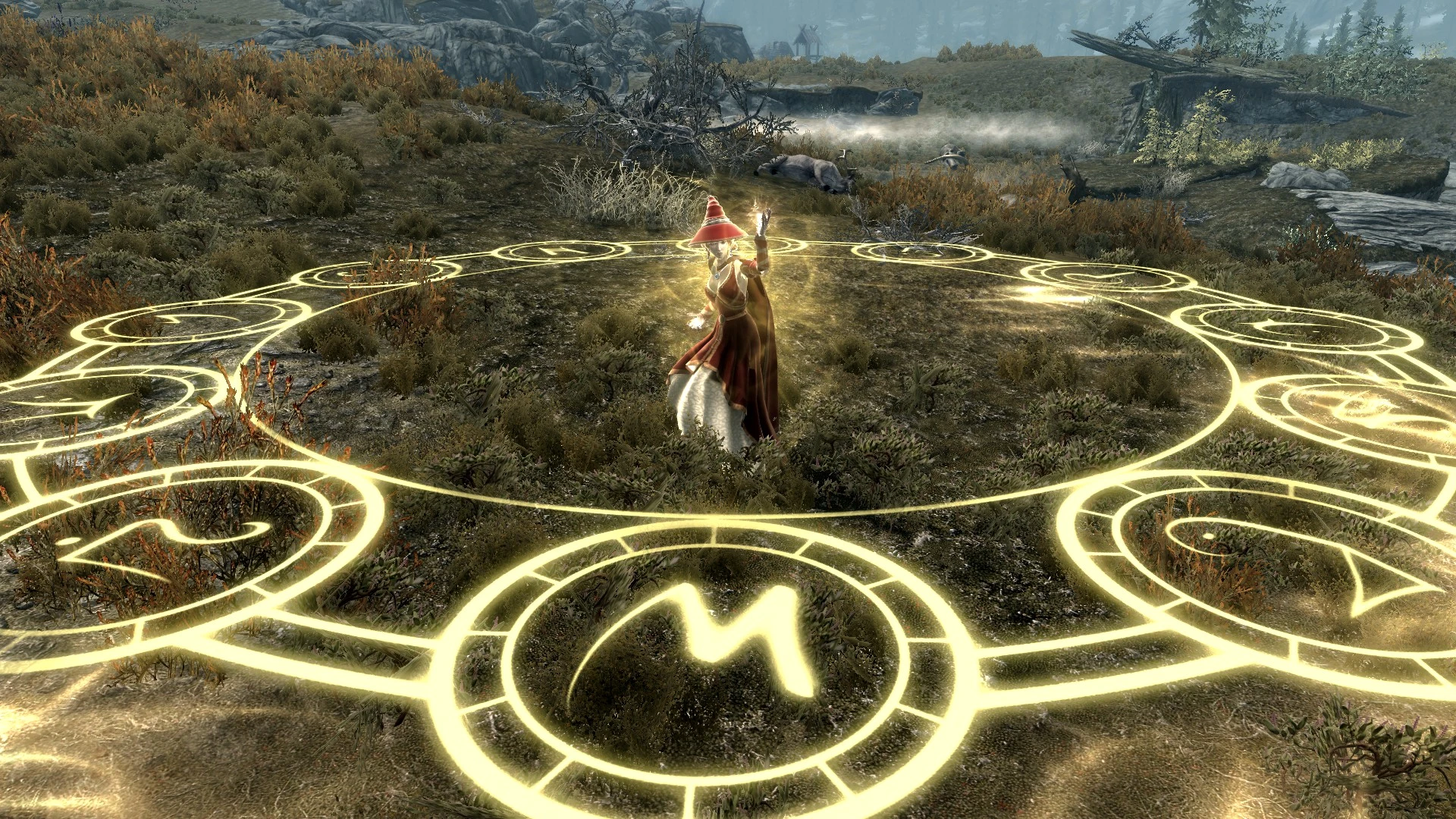

In a very basic sense, the magic circle of a game is where the game takes place. as short-hand for the idea of a special place in time and space created by a game". Salen and Zimmerman note that even though "the magic circle is merely one of the examples in Huizinga's list of 'play-grounds', the term is used.

The concept of the Magic Circle was applied to digital games by Katie Salen and Eric Zimmerman in Rules of Play: Game Design Fundamentals. But that is what scholarship often is – sampling and remixing ideas in order to come to a new synthesis. To be perfectly honest, Katie and I more or less invented the concept, inheriting its use from my work with Frank, cobbling together ideas from Huizinga and Caillois, clarifying key elements that were important for our book, and reframing it in terms of semiotics and design – two disciplines that certainly lie outside the realm of Huizinga's own scholarly work. The magic circle is not something that comes wholly from Huizinga. In fact, Huizinga's thesis is much more ambivalent on these issues and he actually closes his seminal book with a passionate argument against a strict separation between life and games. The "magic circle" is not a particularly prominent phrase in Homo Ludens, and although Huizinga certainly advocates the idea that games can be understood as separate from everyday life, he never takes the full-blown magic circle point of view that games are ultimately separate from everything else in life or that rules are the sole fundamental unit of games. Eric Zimmerman admits this in his 2012 essay " Jerked Around by the Magic Circle – Clearing the Air Ten Years Later" writing: The term Magic Circle was coined by Eric Zimmerman and Frank Lantz in 1999 and popularized by Eric Zimmerman and Katie Salen in 2003. Huizinga's "magic circle" is not a new synonym for "game," but he conceived of a magic circle, like many other cultural activities, as having game-like characteristics. All are temporary worlds within the ordinary world, dedicated to the performance of an act apart. forbidden spots, isolated, hedged round, hallowed, within which special rules obtain. The arena, the card-table, the magic circle, the temple, the stage, the screen, the tennis court, the court of justice, etc, are all in form and function play-grounds, i.e. Just as there is no formal difference between play and ritual, so the 'consecrated spot' cannot be formally distinguished from the play-ground. In Homo Ludens: A Study of the Play-Element in Culture, Huizinga wrote: Īll play moves and has its being within a play-ground marked off beforehand either materially or ideally, deliberately or as a matter of course. The term magic circle has been attributed to Dutch historian Johan Huizinga (1872–1945). As stated by Castronova, the "allegedly 'virtual' is blending so smoothly into the allegedly 'real' as to make the distinction increasingly difficult to see". Thus, it becomes difficult to determine the meaning of the word "virtual". These newly established values, subsequently, gain significance on both sides of the membrane. As this suggests, elements of synthetic worlds are being evaluated in terms of their importance in the outside world.

Castronova uses the term "synthetic world" because a synthetic world "cannot be sealed completely people are crossing it all the time in both directions, carrying their behavioral assumptions and attitudes with them". More directly, there appears to be a relationship between virtual worlds and the outside world.Įven though virtual worlds display a range of attributes that are unique to their realm, they also exhibit characteristics deriving from the outside world. Instead of being impenetrable, however, an examination of contemporary virtual worlds reveals that the magic circle is actually quite porous. As noted by Edward Castronova in Synthetic Worlds: The Business and Culture of Online Games, the boundary delineating this space "can be considered a shield of sorts, protecting the fantasy world from the outside world". In games and digital media, the " magic circle" is the space in which the normal rules and reality of the world are suspended and replaced by the artificial reality of a game world.


 0 kommentar(er)
0 kommentar(er)
